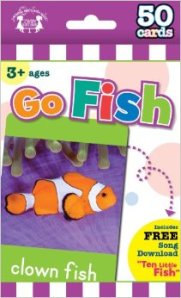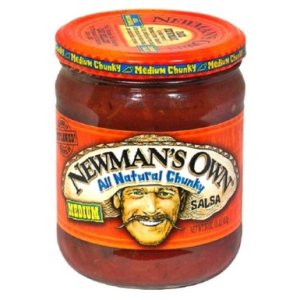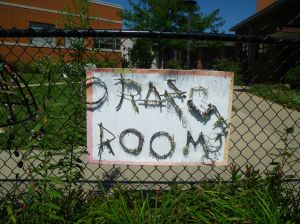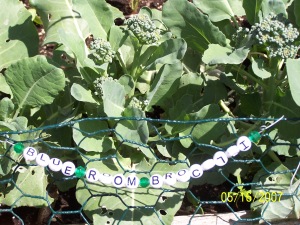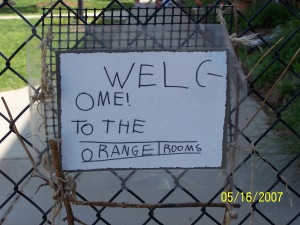Gifts from the Earth:
The earth gives us so many gifts, including clean air, free food, fresh water, and beautiful sunshine. It behooves us then, to return our gratitude to the earth, as many cultures do, and have done, across the span of time, by offering gifts to our gardens, including water, mulch, money, seeds or amendments. Many of the gifts come from teachers, and a few enlightened parents, who model the way forward for parents and children.
Little Red Hen
Without a culture of gift, gratitude and exchange, we risk running into what Catherine calls the “Little Red Hen” syndrome, in which one person (the hen) takes the initiative to plant the seeds, water the seeds, care for the seeds, and harvest the seeds, while the cat, the dog and the duck then swoop in at festival time, to enjoy the bounty of the hen’s hard work. Classic children’s literature contains a kernel of truth for a reason, and schools all too often rely on the hard work of a single red hen to keep the garden going. (It’s not on purpose, it’s just that everyone is oh so busy.) The red hen needs everyone to help shoulder the burden of caring for our gardens, and thus our earth.
A Common Tragedy
A corollary to the “Little Red Hen” syndrome is the scenario in which everybody takes from the garden, but no one has the willingness to care for the garden. In the green world, this is known as “the tragedy of the commons.” The Tragedy of the Commons is an economic term to describe the depletion that happens when common property is shared by everyone; everyone takes what they want, according to their own selfish interests, and the commons are tragically depleted, to the eventual poverty of all.
This is what all too often happens to school playgrounds, and why they typically look the way they do: school playgrounds belong to everybody, and therefore, they belong to nobody. Without building a strong culture of people invested in protecting “the commons,” common spaces such as rivers, parks, playgrounds and seas will gradually fill up with pollution and trash, and will slowly be stripped clean by parties operating primarily out of their own selfish interests. In 2008, through work with Jamie Cloud and the Cloud Institute, the Family Center played the classic “fish game” with teachers, parents, maintenance workers and administrators, only to discover that we are just as human as anyone else.
A Modern Potluck
A gift culture helps protect us from the Little Red Hen scenario, and from the Tragedy of the Commons, as it is customary and polite to return a gift with a proportionate gift. After instituting garden property rights, one classroom might grow tomatoes, another classroom might grow cilantro, another classroom might grow green onions, and upon mutual sharing of the produce, everyone makes salsa! Sharing garden spaces and tools rarely seems to work, but sharing gifts and lessons from the gardens does seem to work.
Just as school kitchens have clear property rights (don’t eat my lunch!), and kitchen rules (wash your own cup!), school gardens require clear property boundaries and clean rules of conduct. And, according the the operating instructions of potluck magic, a school garden will bloom beautifully when each person in the school serves up his or her unique dish for the garden table feast. The trick is to encourage each teacher to develop their own nature practice, and find ways to weave it successfully into the whole of the school.
Developing “Eco-literacy”
In the Eco-Literacy Art project with the Little Orange Room in December 2007, we made gift letters from nature items for our family holiday project, and gifted our school with signage for the Orange Rooms. Working with nature teaches us to work purposefully with the idea of impermanence. Nothing is permanent, except change, and maybe recycling.
Forever never lasts
Instead of buying a plastic sign designed to last “forever,” (but in reality only lasts about ten years), we purposefully built a sign that was designed to fall apart and be recycled. This is an indigenous idea whereby a meeting-house, for example, is purposefully designed to last only about twenty years, so that each new generation gets to participate in the construction of the next longhouse, ensuring that collective wisdom does not become lost. When the “O” falls from the Orange Room sign, next year’s children will get to make another “O”, constructed from natural items found on our very own playground, in a eco-literacy lesson that keeps giving year after year. When the sign becomes too old to be acceptable, the whole sign is composted, and the next crop of children gets to practice making their letters using items found in the garden.
Here’s the same sign, three years later:
Play with your words
Later, just for fun, we made a surprise “Peace” sign for teacher Kath. After that, Kath and the children surprised me with a sign spelling out my name, “Jessie”. A year later, a Family Center child made signs for his teacher at the elementary school, as part of a fundraiser. all showing how a good project can sprout legs and take on a life of it’s own.
Making letters from nature items is an exercise in developing a “sense of place,” rotating letters in space, finger dexterity, collaboration, gift-giving, artistic development and of course, spelling and associating word sounds. It’s important to reveal the learning, and sometimes offer guidance or instruction in an outdoor environment. As a side note, finding or creating beautiful signage for the garden presents a surprisingly high degree of challenge, especially if the project is to be child driven. A simple chalkboard or piece of slate and chalk is one solution that works, as do wooden beads if you can find them. Laminate signs don’t seem to stand the test of time. Here are some of the ideas we’ve tried:
Hunter or Gatherer?
Besides finding treasures in nature, children love to hunt for things, especially boys, and their fathers, who particularly enjoy “surprise-and-pounce” games on the Nature Trail. I notice that mothers and classroom teachers, who are predominantly women, have an instinctive predisposition towards teaching children about plants and planting. Children clearly have a wild love for anything that moves: creatures, critters and animals. When designing nature programs for children, be sure to balance both hunting and gathering, as both are required to deliver a well balanced program, suiting the needs of as many children as possible.
The Gift of Reverence
As parents, we can help create a society that honors our teachers with the gift of reverence for the important work they do. Daisies come into bloom just when school lets out for summer, and May Daisies grow easily on school property. We know from recent studies on happiness that flowers are one of the few things that make people truly happy*, and it is a small but meaningful gesture to make crowns of recognition for our hardworking teachers at the end of the school year.
Crowns for conquerors and for princesses
Cutting flowers is best left for the last few days of school, and even benefits the plants by sending energy into their roots, instead of spending it on flowers. I have discovered that clover tops make splendid fairy princess crowns, and the leaves of lamb’s ears look just like laurel wreaths, worn by roman conquerors, when riding into town victorious on their chariots. There’s not much teaching for a Nature Educator to do during the last few days of school, but making crowns is as worthy as any other activity that fits easily and effortlessly into the end of year celebrations.
* Having dinner with friends is one of the few other things proven to make people happy. Money and the weather don’t seem to register on the happiness scale.



